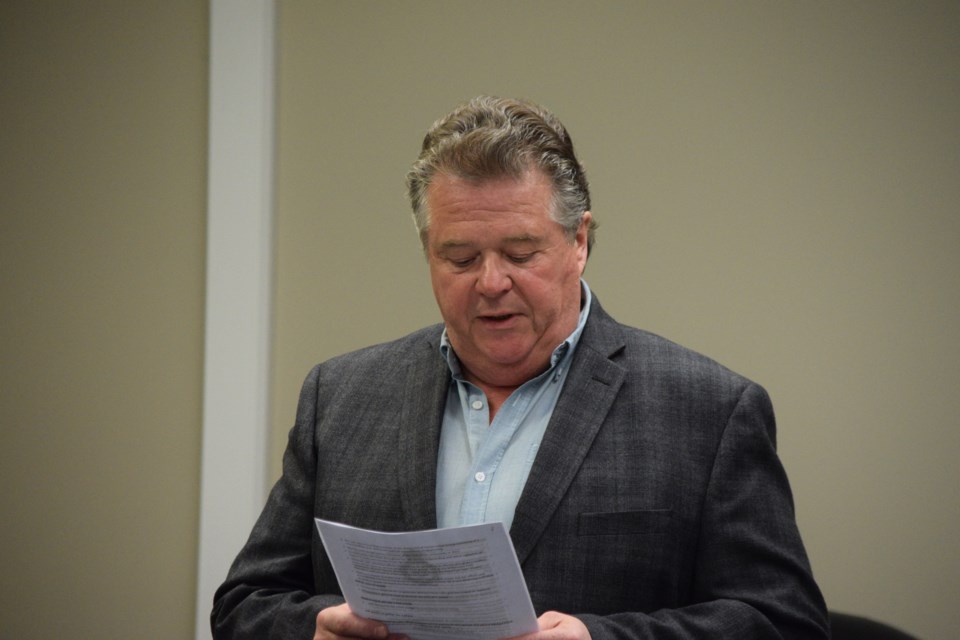BARRHEAD - The County of Barrhead is throwing its support behind Capital City Casinos to move its gaming operation, the Camrose Resort Casino, from Camrose to Edmonton in a bid to see more money go to rural not-for-profit organizations.
The company applied to the Alberta Gaming Liquor and Cannabis (AGLC) to relocateto the Ellerslie Industrial area in September 2021. The application was denied and Capital City Casinos is appealing the decision.
On Feb. 7, councillors instructed the administration to draft a letter asking the AGLC to review its decision and allow the Camrose casino to relocate to Edmonton.
One of the reasons Capital City Casinos applied for the move is that they cited that its location was no longer financially viable, in large part, because of two decisions made by the provincial gaming regulator.
The first decision dates back to 2019, when the AGLC approved the relocation of the Century Mile Race Track Casino from Edmonton to Nisku. The other was last year when the AGLC approved the construction of a new Louis Bull First Nation casino. Both casinos are within 60 kilometres of their Camrose gaming facility.
The company states that by denying their application, the AGLC is effectively hurting local charities and not-for-profit organizations within the Camrose-St. Albert AGLC's defined area. These groups receive less funding as the casino will bring in less revenue unless they move their proposed Edmonton location.
Charitable organizations are usually assigned casinos in their region, with organizations from rural communities being relegated to casinos outside the two main cities. As a result, they receive less money than similar organizations in Edmonton or Calgary. However, if the AGLC approved the move, the casino would still be part of the rural charity gaming pool serving the same charities as they do now.
Reeve Doug noted the Rural Municipalities of Alberta (RMA) also back Capital City Casinos' application.
"To me, the move from Camrose to the city makes great sense. Not only will it increase the pot for the Camrose area, but overall for Alberta," he said. "Initially, I think it even made sense to AGLC, and they had it approved, but then political forces got involved, and they backed down."
In a letter from the RMA to rural municipalities asking them to lobby the AGLC, policy and advocacy manager Wyatt Skovron stated that the casinos in St. Albert and Camrose "currently produce the lowest per-event revenues and have among the highest wait times (for not-for-profit organization casino dates) in the province, while Edmonton's five casinos produce the highest average per-event revenues in the province and have the shortest wait times."
He added that while allowing the Camrose casino to relocate to Edmonton would not solve the inequity of the charity gaming system, it would signal that the province recognizes that the current system is systematically unfair to rural not-for-profit organizations.
Skovron noted that the AGLC board chose not to approve Capital City Casinos’ application due to the advocacy by Edmonton charitable organizations worried that they would potentially lose a portion of the revenues they receive due to another casino within the city for the benefit of rural organizations.
"If we can help AGLC change their mind and go back to their original rationale, it would be a good thing to do," Drozd said.
He also noted that a casino in the city providing funding for surrounding rural area charities already exists in Calgary.
"(And Capital City Casinos) is looking to do the same thing with its Camrose casino. Is it perfect? No," Drozd said, noting there are more equitable models such as province-wide pooling.
"But in the absence of making those types of changes, this would be a good first step in trying to level the playing field."
Coun. Walter Preugschas asked if the RMA committee, which Drozd is part of, had come up with ways to help rural not-for-profit organizations receive a more equitable portion of the provincial casino revenues ever came to fruition.
"I see some common threads when AGLC did its stakeholder consultations that have been carried through," Drozd replied. "But at no point does (AGLC) recognize RMA or rural municipalities."



